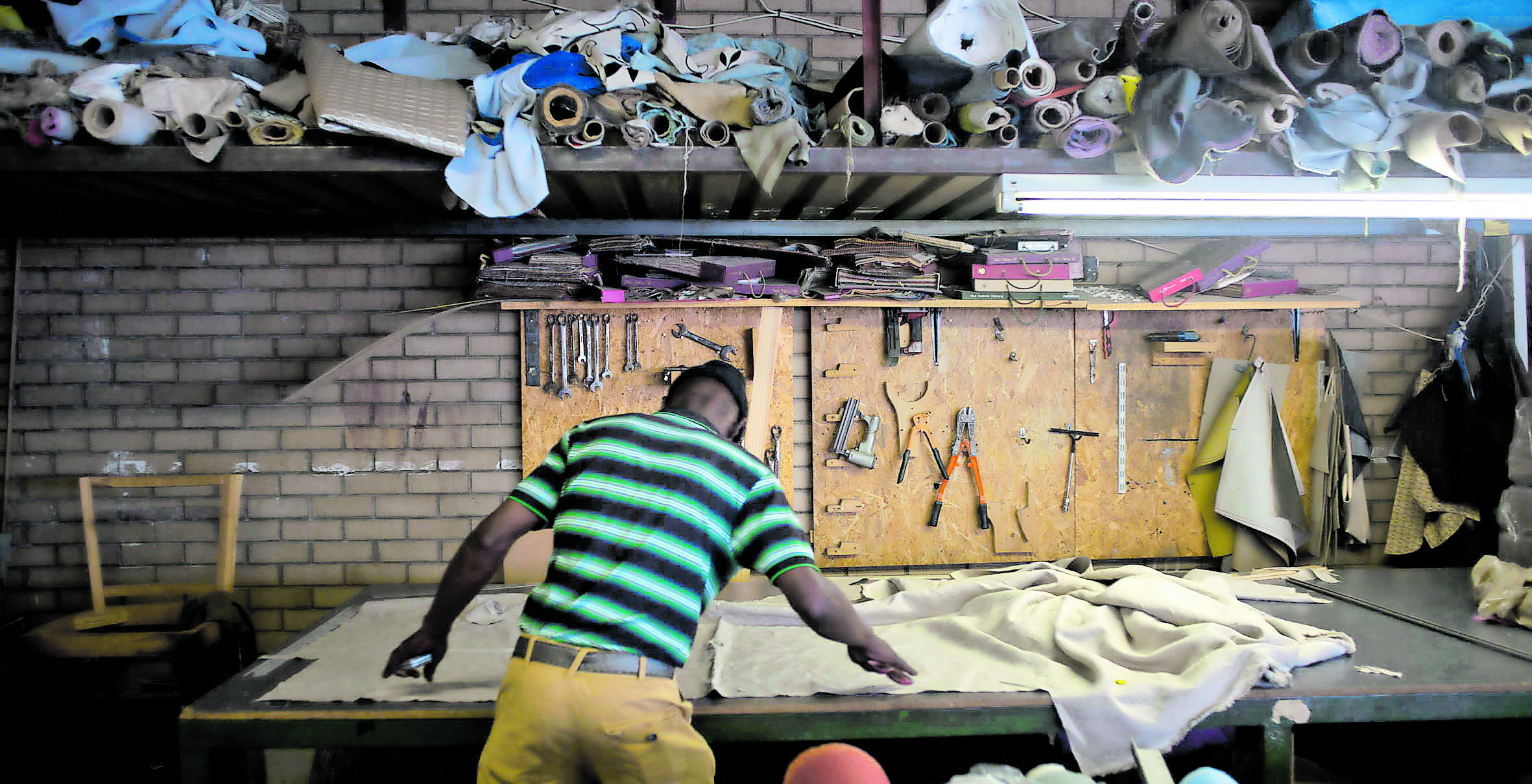Ndumiso Madlala
Bold, decisive and shaking up the political status quo, David Makhura does not shy away from difficulties, directly confronting challenges such as youth unemployment and lack of opportunities in the townships.
Since taking over as Gauteng premier in 2014, Makhura has focused on uplifting entrepreneurs and start-up businesses in the townships through various partnerships between government and the private sector.
“We are acting together with township communities and investors to turn them into havens of sustainable socioeconomic development and empowerment,” said Makhura during his state of the province address.
“For township residents, the new dawn must represent a major facelift in the infrastructure as well as the look and feel of their townships, as part of our renewal and revitalisation programme. The Gauteng provincial government and municipalities have been the leader in the country in the revitalisation of the township economies.”
Without government support, entrepreneurs remain adrift and cannot take off. Makhura’s administration, through the Gauteng Enterprise Propeller, has rolled out a number of programmes; to date they have supported a total of 30 000 SMMEs and co-operatives. These programmes include access to finance, aftercare services through relationship managers and mentors and improved business efficiency, among others.
Success stories
One of the township success stories is the Soweto Brewing Company, founded by Ndumiso Madlala and Joseph Schnid in 2012. Their vision was to bring the success of local brewing into a township environment and create a world-class beer that is truly Sowetan. The company now has 35 employees.
“We started the company in 2012 and it has been absolute pleasure; we have since won the Township Economy Awards,” said Schnid. “We have benefitted from government support. We worked closely with SARS and the Liquor Board and we have [had] nothing but support from the government. The Industrial Development Corporation also supported our business. We are currently finalising a merger and acquisition with Heineken, and we will be expanding the business and venturing in other provinces.”
 Several initiatives have been started by the Gauteng provincial government to help township businesses find their feet. (Photo: Oupa Nkosi)
Several initiatives have been started by the Gauteng provincial government to help township businesses find their feet. (Photo: Oupa Nkosi)
Another successful township venture is Teen Tee (Pty) Ltd, a cereal supplier to daycare centres in Soweto. The cereal supplier hopes to reach 5 000 daycare centres by the end of June 2018. “We are thankful for the support from government as [an] SMME,” said founder Thapama Kgori. “We recently applied for a loan of R58 000 from the Gauteng Enterprise Propeller, and this has helped us tremendously. We supply oats to daycare centres in Soweto, but our ambition is also to supply cereal to Gauteng and later, the whole country. At the moment we are still in Soweto and growing the business.”
“If Gauteng is the hub of South Africa’s economy, the townships are the heartbeat of Gauteng. I dream of the townships being spaces where there is a vibrant culture and dynamic local economies underpinned by state-of-the-art infrastructure,” said Makhura during his state of the province address.
“The people in the townships need real jobs and thriving businesses where they live. They need state-of-the-art schools, libraries, clinics, hospitals, roads and other social amenities right in the townships. They need reliable, efficient and affordable public transport.”
Makhura said the number of township enterprises doing business with his government has increased from 642 in 2014 to 4 182 in 2017, while public procurement spend on township enterprises has increased from R600-million to R17-billion.
“The introduction of the Township Economy Awards has stimulated huge interest among township businesses, which compete to showcase their services and products. The awards have contributed to the growth of township businesses through financial support as well as access to markets,” he said.
“Our work, as the champion of the township economy, has given rise to a serious wave of entrepreneurial activity in the townships, especially among the youth. Accordingly, the 2017 Ventureburn Tech Startup Survey shows that 44% of tech start-ups list Gauteng as their home, as compared to only 26% in 2015. The survey also indicates that 53% of start-ups owned by young black entrepreneurs are Gauteng-based, while most of the Western Cape start-ups are owned by older white entrepreneurs.
“Funding and access to markets are the two most critical barriers facing black start-ups and township enterprises. The initiative on the township stock exchange is in its final stages, in partnership with the private sector. We have also completed a feasibility study on the establishment of a provincial state bank, which will enable us to mobilise funding for SMMEs, township enterprises, women and youth businesses as well as for infrastructure development.”
The Gauteng Enterprise Propeller recently launched the Pitching Boost Campaign. The campaign provides township-based youth and non-youth SMMEs an opportunity to present innovative business ideas to corporates, investors and other entrepreneurs in order to qualify for business development support.
The Pitching Booster Campaign is targeting SMMEs from Sedibeng, West Rand and Tshwane regions, with special focus on Soshanguve, Heidelberg, Lesedi, Merafong, Randfontein and Sicelo townships. These areas were chosen because of their high rates of unemployment.